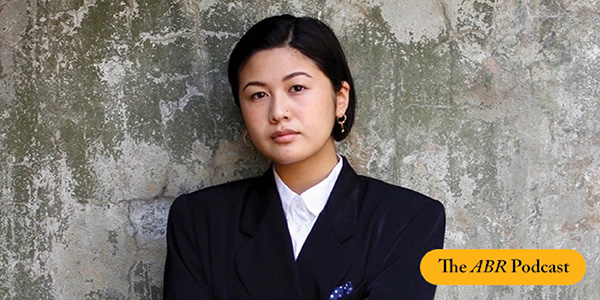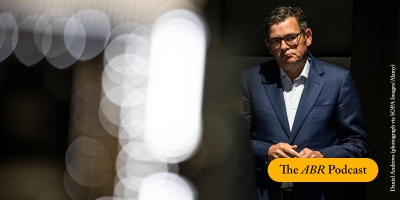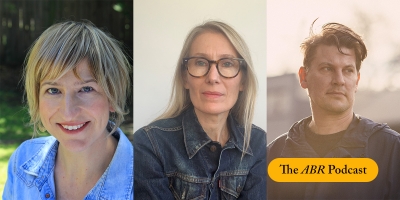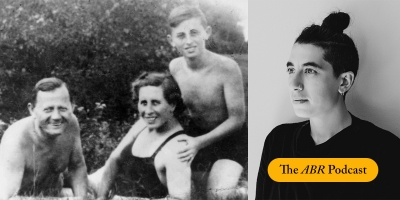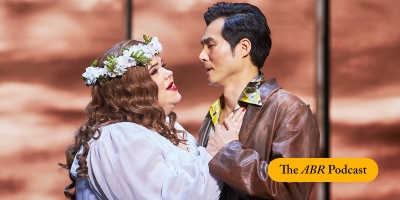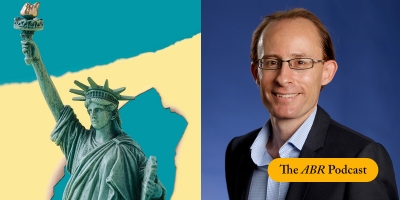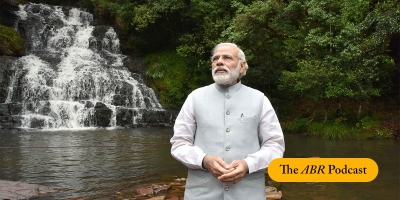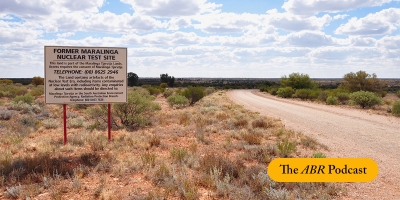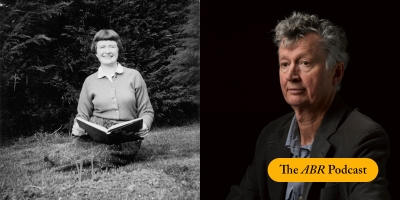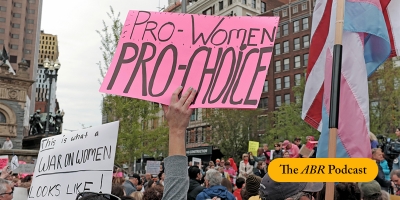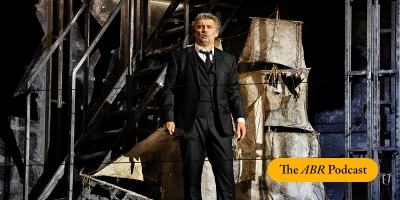Podcast
The ABR Podcast
Released every Thursday, the ABR podcast features our finest reviews, poetry, fiction, interviews, and commentary.
Subscribe via Apple Podcasts, Stitcher, Google, or Spotify, or search for ‘The ABR Podcast’ on your favourite podcast app.
Thought’s tempo
Essays that imagine otherwise
This week, on The ABR Podcast, Mindy Gill reviews Dead and Alive, Zadie Smith’s latest essay collection. For Gill, Smith’s essays ‘have an uncanny habit of arriving precisely when the culture shifts’. Dead and Alive ranges across technology and digital surveillance, authorship and literature, and the erosion of public space, among other urgent concerns. Considered together, ‘these essays reveal continuities otherwise invisible when read in isolation: a set of preoccupations that cut across ostensibly tangential subjects’.
Mindy Gill was ABR’s 2021 Rising Star. A poet, critic, and former editor-in-chief of Peril magazine, Gill is an Associate Lecturer of Creative Writing at Queensland University of Technology. She has won the Queensland Premier’s Young Publishers and Writers Award and the Tom Collins Poetry Prize. Her collection of poems, August Burns the Sky, was shortlisted for the Thomas Shapcott Poetry Prize. Here is Mindy Gill with ‘Thought’s tempo: Essays that imagine otherwise’, published in the January-February issue of ABR.’
Recent episodes:
As the November election date approaches for Victoria, Daniel Andrews is currently Australia’s longest-serving incumbent state premier. Journalist and author Gideon Haigh examines a new biography of Andrews by The Age’s state political reporter Sumeyya Ilanbey, noting her astute observations of Andrews and his ‘modus oper-Andrews’.
... (read more)In this year’s ABR Elizabeth Jolley Short Story prize, we received more than 1,300 entries from thirty-six different countries, a testament to ongoing international interest in the Jolley Prize and ABR. Writers explored themes and topics including the pandemic, climate change, grief, desire, parenthood, and community. In this week’s podcast, the three finalists read their shortlisted stories: ‘Dog Park’ by Nina Cullen, ‘Natural Wonder’ by Tracy Ellis, and ‘Whale Fall’ by C.J. Garrow. They are briefly introduced by Jolley Prize judge and ABR Deputy Editor, Amy Baillieu.
... (read more)The runner-up in this year’s Calibre Essay Prize, Sarah Gory’s essay ‘Ghosts, Ghosts Everywhere’ confronts spectres of the past in order to pose questions about how to live ethically in the present and about what responsibilities we bear towards the future. Drawing on a wide range of writers and thinkers as well as her grandfather’s experience of the Holocaust, Gory plots the process by which one generation’s traumatic suffering becomes another’s imaginative investment.
... (read more)Based on Antonio Garcia Gutierrez’s El Trovador, a romantic melodrama set against the backdrop of a fifteenth-century Spanish civil war, Giuseppe Verdi’s Il Trovatore has been described as the ‘apotheosis of the bel canto opera, with its demands for vocal beauty, agility and range’. Yet in what is also his darkest and most death-haunted work, Verdi invests the brightness and vocal embellishments of bel canto with greater dramatic tension ...
... (read more)Russia’s invasion of Ukraine in late February this year was met with near universal condemnation by Western nations. While aggression of this kind and on this scale has been relatively anomalous this side of the second world war, Russia’s disregard for the laws and institutions upholding global peace and security is far from unprecedented. In this week’s episode of The ABR Podcast, Ben Saul reads his commentary piece from the July issue, arguing that Western disrespect for international law is entirely consistent with Russia’s violation of ‘a stable, mutually agreed world order’ ...
... (read more)A year before he ascended to the prime ministership of India in 1947, Jawaharlal Nehru proclaimed that his nation was ‘a cultural unity amidst diversity, a bundle of contradictions held together by strong but invisible threads’. Yet, in the seventy-five years since India’s independence, secularist tolerance of religious and cultural difference has been eroded by a rising tide of Hindu majoritarianism. In this week’s episode of The ABR Podcast, John Zubrzycki reads his commentary on India’s transformation under Narendra Modi’s leadership ...
... (read more)Of the many pernicious legacies of colonialism, Australia’s servility in the face of Britain’s nuclear arms aspirations is one of the most under-reported and most consequential. In this week’s episode of The ABR Podcast, Elizabeth Tynan reads her essay tracing the clandestine history of, and fallout from, the agreements that allowed the British to test atomic weapons at various sites in South and Western Australia after World War II. By highlighting the Menzies government’s eager consent and the Australian media’s compliance, Tynan shows that far from being a passive victim, Australia was largely complicit in tests that wrought havoc on large tracts of land and on the Indigenous communities who lived there.
... (read more)Ann-Marie Priest’s My Tongue Is My Own, published by La Trobe University Press and reviewed in our June issue, is the first authorised biography of the Australian poet Gwen Harwood (1920–1995). Unsurprisingly, this was not the first attempt to record the life of one of Australia’s most loved and admired poets. In an exclusive feature for ABR, John Harwood reflects on the conflicting motives behind his literary executorship of his mother’s estate – an estate holding the secrets to an at-times fractious marriage between two opposing temperaments.
... (read more)The leaked draft judgment in the case of Dobbs v. Jackson Women’s Health Organization, in which US Supreme Court Justice Samuel Alito proposed overturning the precedent set by Roe v. Wade, has returned abortion rights to the headlines. In this week’s episode of The ABR Podcast, Linda Atkins reads her essay, ‘Shouting Abortion’, which sets women’s right to terminations within the broader context of intergenerational poverty and the class lines of the medical profession ...
... (read more)Conceived during a holiday in the spa-town of Marienbad, Lohengrin stands at the crossroads of Richard Wagner’s operatic oeuvre: it was the last work composed before his political exile (as a result of his participation in the Dresden Uprising) while offering a glimpse of the leitmotivic technique that would become the signature of his late style.
... (read more)
